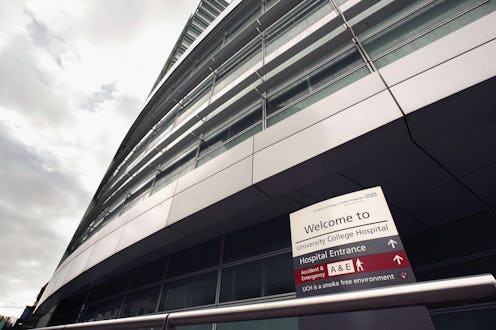News
Wisconsin Hospitals Try To Reject Abortion Doctors
Today in news that makes sense: Three Catholic hospital systems in Wisconsin planned to deny admitting privileges to doctors who perform abortions, but last week Attorney General J.B. Van Hollen's Department of Justice said doing so would "be in active violation of federal law" in a court filing.
Wheaton Franciscan Healthcare, Columbia St. Mary's Health System, and Hospital Sisters Health System could lose federal funding if doctors can prove they weren't granted admitting privileges specifically because they provide abortion procedures.
Right now, doctors who perform abortions are facing a new law that would require them to obtain privileges at hospitals within 30 miles of their clinics. The law has been blocked until at least November for unconstitutionally restricting abortion access and unconstitutionally treating abortion providers differently from other doctors. Still, according to Planned Parenthood, at least four of the seven doctors in the state who lack privileges are applying for them at religiously affiliated hospitals in an attempt to undermine the law.
The hospitals initially said they would not grant privileges to abortion providers, citing their Catholic affiliations.
"The medical staff and hospital board have discretion in making decisions on granting privileges and can consider the mission, values, and operational needs of the organization. Requiring certain professional, ethical, and character qualifications is recognized by the courts as valid and related to the operation of the hospital," said Matt Moran, Wheaton Franciscan's assistant general counsel.
But Gretchen Borchelt, senior counsel and director of state reproductive health policy at National Women's Law Center, said she does not know any case law that would allow refusing privileges to doctors who perform abortions. Furthermore, the doctors in question could use the hospitals' statements to strengthen potential cases against one of the three Catholic systems.
"They can use the statements as evidence that even if [the hospitals] say it's not about religious belief, it is," Borchelt said.
Call it a glass half full?
